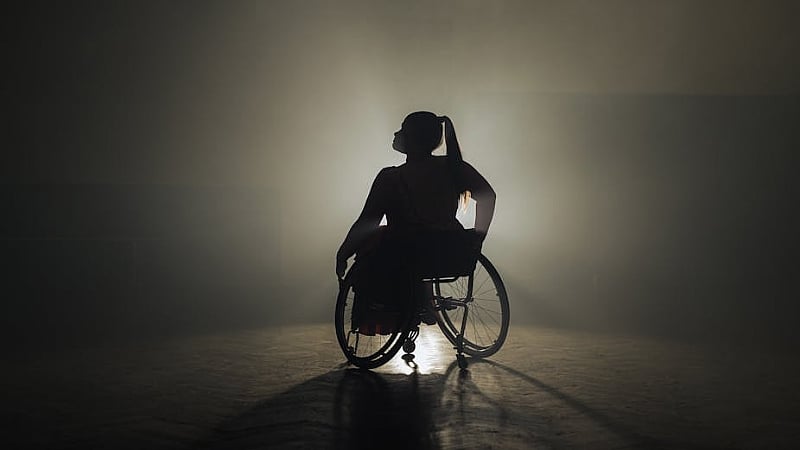Imagine feeling invisible simply because of your body. Now imagine that invisibility extends into how society treats your desires, your safety, and your rights.
That is the everyday reality for many women with disabilities in developing countries, where 80% of people with disabilities live. And it’s an issue the policymakers must address to promote inclusive policies that reach the most marginalised.
We are global health researchers and authors of a recent qualitative study that explores the sexual experiences of women with disabilities in Lagos, Nigeria.
Despite growing global interest in sexual and reproductive health, the voices of women with disabilities have remained largely unheard, especially in low- and middle-income countries such as Nigeria.
Our research aims to break this silence.
The women in our study told us they had sexual needs and desires like any other women, but they faced particular challenges such as societal stigma, inadequate access to reproductive health services, widespread misconceptions about contraception and sexual harassment. They suggested how more accessible health services and better legal protection could help them.
How we did our study
We spoke to 24 women in Lagos between the ages of 20 and 45. Sixty-seven percent of participants had physical disabilities, while 33% had visual impairments.
Participants were recruited through local networks and came from a range of educational, employment and marital backgrounds. They were asked open-ended questions in interviews conducted in English, Yoruba or Pidgin.
We focused on how disability influenced their sexual activity, autonomy, contraceptive use, engagement in risky sexual behaviours, and experiences of sexual violence.
What we learnt
Our research found that the women were mostly sexually active and understood their sexual rights.
However, they faced major barriers:
physical limitations
poor access to affordable contraceptives
misinformation
vulnerability to sexual violence, with limited support available
widespread stigma that made it difficult for them to express their sexuality freely and safely.
‘We are not asexual’
Many participants rejected the stereotype that they were “asexual” or uninterested in sex. They emphasised they had sexual needs and desires just like any other woman.
Some participants expressed that being disabled made certain sex positions painful or physically impossible.
A woman who was in her thirties told us that her husband complained that she couldn’t “do different styles”.
Other women expressed sadness, frustration, or even guilt for not being able to satisfy their partners, leading to feelings of rejection and abandonment.
Accessing modern contraceptives was another major issue.
Some of the women said they were afraid of using contraceptives because of health myths – like the fear that birth control might worsen their disability or cause infertility.
Others struggled to go to pharmacies because of their limited mobility and obstacles such as being unable to use stairs.
Several women said they had experienced harassment, assault or rape, often linked to their vulnerability and social isolation.
One woman described her sexual assault.
If I were not disabled and nothing was wrong with me, the one that happened to me would not happen. Because of my leg, I didn’t have any energy to shout, and the people that were supposed to assist me did not show up. If I had legs and was complete, the thing that happened to me will not happen.
A visually impaired woman said she couldn’t defend herself or even recognise her attacker when she was abused.
Another said:
If I had legs, that thing would not have happened to me.
A number of women also spoke about the fear of being blamed or shamed about their sexual harassment experience. Others said people in their communities believed they had no right to complain.
It’s not all bad
Still, it wasn’t all despair. The women in the study had clear and actionable suggestions.
They called for accessible health facilities, better education for men about disability and sex, and more media campaigns to challenge stigma.
They wanted laws that specifically protected them against sexual harassment and health systems that included them in terms of physical accessibility and financial subsidy.
Some called for free or subsidised contraceptives or door-to-door services for those unable to travel.
One participant simply asked for a walking aid so she could visit the hospital when she needed to.
We are not invisible
The findings highlight the need for accessible, affordable sexual and reproductive health services tailored to women with disabilities.
This includes disability-friendly healthcare, public education to challenge stereotypes, stronger legal protections, and initiatives that empower women to assert their rights.
Society needs to stop pretending that women with disabilities are invisible. They are here. They are sexually active. And they have a right to love, pleasure, safety and choice.
Obasanjo Bolarinwa works for York St. John University, United Kingdom.
Blessing Babalola works for Federal University Oye-Ekiti.
CLIFFORD O ODIMEGWU works for the University of the Witwatersrand.
Aliu Mohammed does not work for, consult, own shares in or receive funding from any company or organisation that would benefit from this article, and has disclosed no relevant affiliations beyond their academic appointment.
By Obasanjo Bolarinwa, Senior lecturer, York St John University And
Aliu Mohammed, Lecturer in Nursing and Public Health, University of Energy and Natural Resources And
Blessing Babalola, Senior Lecturer And
Clifford Obby O Odimegwu, Professor, University of the Witwatersrand


